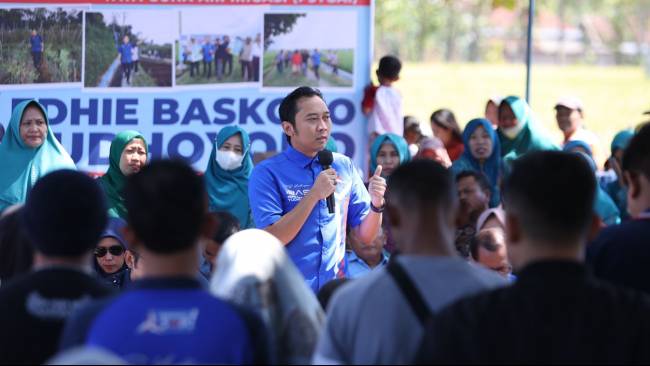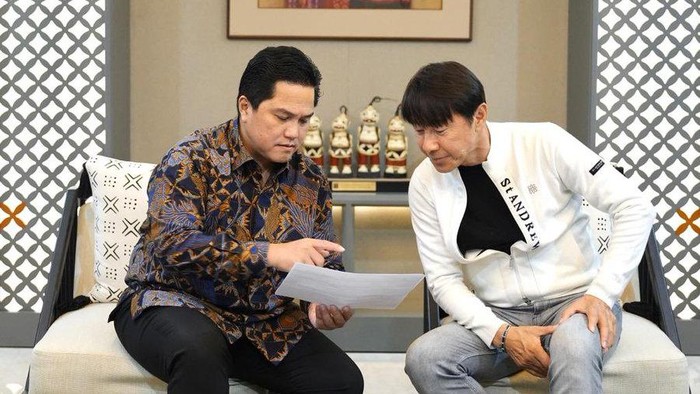

gerpanghealthcare.com, JAKARTA – Welcome to the dynamic world of Indonesian politics, where promises made during campaigns often hold the key to public trust and accountability. In 2019, amidst fervent excitement and pledges for change, Prabowo-Gibran emerged with a vision that captivated the nation. As we fast forward to 2024, it’s time to reflect on whether those promises have blossomed into reality or remain mere echoes of a spirited campaign. Join us as we delve into the realm of political commitments and the reminder from Ibas urging Prabowo-Gibran to uphold their words for Indonesia’s future.
Overview of the 2019 presidential campaign promises made by Prabowo-Gibran
In the heated political arena of Indonesia, the 2019 presidential campaign saw Prabowo-Gibran making bold promises to the electorate. From economic reforms to social initiatives, their platform was ambitious and captivating. They pledged to boost job creation, improve healthcare access, and enhance education quality across the archipelago.
Prabowo-Gibran’s vision resonated with many Indonesians who were eager for change and progress in their country. The promise of a brighter future fueled hope and excitement among voters nationwide. As they clinched victory in 2019, expectations ran high as citizens eagerly awaited the implementation of these transformative pledges. Three years on from that historic election, it is crucial to assess how far these promises have been fulfilled. The Indonesian public now looks towards Ibas’s reminder to Prabowo-Gibran urging them not to forget their commitments made during the spirited campaign period.
Current status of the promised reforms and initiatives
With the 2019 presidential campaign promises of Prabowo-Gibran still fresh in the minds of many Indonesians, it’s crucial to assess the current status of these pledged reforms and initiatives. Citizens eagerly await tangible results from their elected leaders regarding issues like economic development, social welfare, and good governance.
However, as time passes since the election, concerns have arisen about the slow progress or lack of visible action on some key promises. The public is growing impatient for concrete steps to be taken to fulfill these commitments made by Prabowo-Gibran during their campaign. Transparency and accountability are vital components in ensuring that promised reforms translate into meaningful change for Indonesian society. It is essential for leaders to prioritize these pledges and actively work towards implementing them effectively to regain trust and confidence from the electorate.
Ibas’s statement and reminder to Prabowo-Gibran
In a recent development in Indonesian politics, Ibas, the son of former President SBY, has made headlines by reminding Prabowo-Gibran to stay true to their campaign promises. This call for accountability comes at a crucial time as the public watches closely to see if the promised reforms and initiatives will be implemented. Ibas statement serves as a poignant reminder that political leaders must uphold their commitments made during campaigns. The pressure is on for Prabowo-Gibran to deliver on their pledges and address the expectations of the Indonesian people who voted them into power.
With the 2024 elections looming on the horizon, it is essential for politicians like Prabowo-Gibran to demonstrate integrity and commitment to fulfilling their promises. Failure to do so could have significant consequences not only for their credibility but also for the trust of the electorate in future leaders. As discussions around delivering on campaign promises continue, it remains vital for politicians to prioritize transparency and accountability in governance. Only time will tell how Prabowo-Gibran navigate this challenge and whether they can meet the demands of an expectant nation watching closely.
Potential consequences of not delivering on promises
Failure to deliver on campaign promises can lead to a loss of trust and credibility in the eyes of the public. When politicians do not follow through with their commitments, it can breed skepticism and disillusionment among voters. This lack of accountability may result in decreased support for the political figures and parties involved.
Moreover, unfulfilled promises could hinder progress and development in a country. If key reforms or initiatives are left unrealized, it could impede economic growth, social welfare improvements, and overall stability. The failure to implement promised changes may also perpetuate existing issues or create new challenges that remain unaddressed.
In addition, not delivering on campaign promises may embolden opposition parties or critics who will use these unmet commitments as ammunition against the incumbent leaders. This could lead to increased scrutiny, criticism, and potential backlash from both within the political sphere and among the general populace.
Analysis of public opinion on the issue
The public opinion on Prabowo-Gibran’s campaign promises is divided. Some people are hopeful and optimistic that they will deliver on their commitments, while others are skeptical and doubtful of their intentions. Social media platforms buzz with discussions ranging from excitement to disappointment regarding the progress made so far.
Many Indonesians eagerly await concrete actions to fulfill the promises made during the 2019 campaign period. The lack of visible results has sparked concerns and debates among citizens who want to see real change in their country. As time progresses towards the next election cycle in 2024, the pressure mounts for Prabowo-Gibran to demonstrate tangible outcomes from their pledges. It remains crucial for them to address these sentiments effectively and communicate transparently with the public about their plans moving forward. Staying connected with constituents’ expectations is essential for maintaining trust and credibility in politics.
Conclusion
In the dynamic political landscape of Indonesia, promises made during campaigns hold significant weight. The 2019 election saw Prabowo-Gibran presenting ambitious plans for reform and progress. However, as time passes, it is crucial to hold leaders accountable and ensure that these promises are fulfilled. Ibas’s recent reminder to Prabowo-Gibran serves as a call to action, urging them to deliver on their campaign commitments. Failure to do so could result in disillusionment among voters and a loss of trust in the political process.




